A blog for lovers of the printed word (novels, short stories, poems--the Ing so to speak), popular film, politics, and casinos (the Bling).
Saturday, December 29, 2007
Slots Addicts and Sexy Women
Don't worry about it, ma'am.
I once did an informal poll of my slot machine friends--both males and females.
Here's the question for males: which do you like better, making love to a sexy woman or playing the slots?
Males answered: (approximately)
40% Playing the slots
40% Making love to a sexy woman
20% Making love to a sexy woman and Playing the slots are about equal in my book.
Here's the question for females: which do you like better, having an orgasm or playing the slots?
Females answered: (Approximately)
60% Having an orgasm and Playing the slots are about equal in my book.
10% Having an orgasm
30% Playing the slots
Once again, it was an informal study with a very small group of respondents (20 in all--10 males and 10 females) and all of the respondents were serious slots addicts who had spent time in GA and whatnot and all of the respondents answered me in a face-to-face manner in a group setting rather than in a blind survey format, so I am not really sure what to make of the results. Were they just BS-ing me or posturing? Maybe.
But what I do know is that when your addicted husband or boyfriend is hanging out late and comes home smelling like casino (stale cigarette smoke and cheap liquor), it is very unlikely that he has been sleeping around.
With your wife or girlfriend coming home late smelling like casino, it is probably the same thing, unless she has compromised herself with some guy in order to get money to play the slots (this happens sometimes).
But all in all, slots addicts are more interested in their gambling than they are interested sex.
Ladies, as I said in the book ALL OR NOTHING, you are not going to lose your man to a sexy woman he met at a casino--you are going to lose him to the casino. The casino IS THE SEXY WOMAN.
Happy New year!
Preston
Monday, December 24, 2007
Merry Christmas Movies
Here is my list, Preston L. Allen's 10 Best Christmas movies of all time:
10. Bad Santa (would be #1 on my list if it were suitable for family viewing)
9. The Three Godfathers (John Wayne!)
8. Miracle on 34th street
7. Home Alone
6. A Christmas Story (this movie is soooo funny and sweet)
5. Jingle All the Way (Arnold!)
4. Elf
3. The Grinch Who Stole Christmas (the original Dr. Seuss version!)
2. A Charlie Brown Christmas
1. It's a Wonderful Life
Well, it's Christmas Eve, folks. Go to bed early, then get up early. Christmas is here!
Friday, December 21, 2007
Merry Christmas, Lap Dancers
They say sex is a vice too. Some of you may have seen this on AOL.
Texas Slaps 'Pole Tax' on Strip Clubs
By DAVID KOENIG,
AP
Posted: 2007-12-21 20:01:24
Filed Under: Nation News
DALLAS (Dec. 21) - Texas, where strip clubs have given rise to Anna Nicole Smith and many other less-generously endowed performers, is about to make it more expensive to watch a little bump and grind.In what some have dubbed the "pole tax," the Lone Star State will require its 150 or so strip clubs to collect a $5-per-customer levy, with most of the proceeds going to help rape victims. The tax goes into effect on New Year's Day.
Club owners and some of their customers say the money is going to a noble cause, but they argue that the tax infringes on their First Amendment right to freedom of expression, that it will drive some bars out of business and that it unfairly links their industry to sex crimes.
"We'll be fine. I've already stopped advertising, and we're raising our cover charges. But this is going to kill some of the smaller clubs," said Dawn Rizos, who runs The Lodge, a Hemingway-inspired place that has exotic animal heads on the walls and is packed after Dallas Cowboys games at nearby Texas Stadium.
The strip clubs are suing to block the tax, which state officials estimate will raise more than $40 million a year, based on liquor sales figures. If accurate, the estimate suggests at least 8 million people a year go to Texas strip clubs to get a lap dance or watch women pole-dance in a G-string . . . continued on AOL.
_________________________________________
Preston L. Allen responds to article
The Vice for Nice Scheme
Tax, tax, tax, and blah, blah, blah. Go read the rest of the article on AOL, if you care to.
Now here's why I put the article on this blog. It got me to thinking about the strange bedfellows made when vice and government unite (through the guise of taxes) to make bad situations nice.
(First, let me get this out of the way: yes, it is a nice thing for a state to set aside money to help its rape victims. I'm all for it. Rape is bad. Helping rape victims is nice.)
Now, back to my point. I have noticed that a state (say Florida, for example) will get voter support for the initial approval/creation of its lottery by loudly advertising how a portion of the revenues will go to help "education" so that in the voter's mind it comes out as an either/or proposition (which it is not, and any high school logic teacher can point out the either/or fallacy to you)--the either/or proposition being in some voters's minds: either I support a creation of a state lottery or I don't support education. In other words, if I don't support vice, then I don't support nice. Hmmm.
Fine, so we count the votes and we get a state lottery. What's so bad about that? It may be a vice, but at least the money is going to education--which is nice.
Well, the next problem, in some states, (say Florida, for example) is that the money goes to help education but not in the way that the voters thought it was going to go to help education. What do I mean?
Well, when we vote for a lottery because our state promised, let's say for example, $100 million dollars annually (or $200 million, or even one billion dollars)--we think, gee, what a nice deal. Really nice. Really, really nice. Now our state education budget is going to get an additional $100 million dollars (or $200 million, or a billion). Wow, we can set aside money for more state scholarships, computer upgrades, teacher salaries and training, sports equipment. Nope. Wrong answer. That is not the case at all.
What the careful wording in the very loud ad campaign usually means is that the $100 million collected from the lottery revenue will replace $100 million that would have been raised by other means. In other words, your meager state education budget remains exactly the same--you just get a portion of the money from a different source, i.e., the lottery.
Oh. Well, that's not so nice. We get all the vice (with its attendant problems), but almost none of the nice.
(Now, granted, this is not true in all states. I am told that Georgia, for example, a relatively small state with a relatively modest lottery (which rarely hits the $20 million dollar mark), has used its lottery revenues in such a way that all Georgia high school students who want to can go to a state university tuition-free. [[I am going to check on this to make sure that this is true--if anyone out there in Georgia-land can verify this information for me, please do so--and if it is indeed true, Georgia legislators, God Bless You for being good stewards of your children's futures. Florida, not so far behind, has the Bright Futures Program, which will pay state tuition and books, but the student has to have a certain GPA and/or a certain SAT score.]])
The worst part of this vice for nice scheme, however, is something I haven't mentioned yet. It is something that makes the entire undertaking a bit . . . sinister--even if you live in a Good Legislator Zone like Georgia: the state now owes the existence of its nice to its vice. This is quite a dilemma, no?
On the one hand, the state claims to support programs to aid and/or cure people with this terrible vice; on the other hand, the state depends on the vice itself to fund its nice.
Let's get away from gambling and state lotteries for a moment and go back to the Texas strip club example.
Let's say it works. Let's say Texas raises so much revenue from the $5 per head "pole tax" on lap-dance-hungry Texans that it is able to provide adequate medical treatment, counseling, and rehabilitation for all state rape victims (and hopefully it branches out and provides similar services to spousally-abused Texas women and their children).
But this nice (ness) comes with a price, no? If the vice in question (the strip club industry) falls on hard times, then the money for Texas rape victims becomes uncertain. Might the state of Texas at some point not be encouraged to provide assistance to struggling . . . strip clubs . . . so that through their prosperity the cash needed to aid rape victims continues to flow? On behalf of the strip clubs, Texas legislators might be compelled to wink at certain local zoning laws, to provide the clubs tax breaks, or to grant the clubs permission to include previously illegal stage acts so as to attract a larger, more profitable audience.
With state gambling, where the "nice" in question happens to be our children, the stakes are even higher. What will our state legislators be willing to grant so that our vice (our state lotteries) prosper and thereby continue to fund our children's educations?
In other words, if the state lottery isn't making as much money as it used to because people are wising up and learning to beat their addiction--then that means the state education budget is at risk. Our children's education is at risk, oh my.
In this case, does the state improve the lottery so that it becomes even more attractive to those gamblers struggling to beat their addiction? Hmmm. That's not nice.
Does the state improve its advertising campaign (more commercials, more billboards) to get back those gamblers who have beaten their addiction and to attract new gamblers (kids who just turned 18)? Hmmm. That's not nice.
Does the state improve the games themselves so that they are more compelling (they promise bigger payoffs) but stingier (they do give bigger payoffs, but less often and to fewer people, and thus earn the state more money--for the children)? That is not nice at all.
It's not nice? Who are you kidding? Look around you. These things are already happening. Check out the latest scratch off games at the convenience store. They can cost as much as $20 per play, and what do you win? Are your odds any better than playing the 1-dollar game? Turn the card over and read the odds. But we need money for education. Hahahaha. Yeah, right.
The state has learned from the casinos, who make no pretense at being the answer to the funding of your children's education. I have noticed that over the years at a particular Indian casino here in Florida that as it prospered, the games, despite what they told us, began to pay off less and less. Understand what I am saying: the games became more attractive, more addictive, but less profitable.
Take the diamond game, for example. You South Florida gambers know what game I'm talking about. The diamond game looks like the old build-your-own lotto machine that so many of us were hooked on before we got help at GA: four screens; you can pick six numbers per screen; payoffs are good if you get first2, first3, first4--and you really make a mint if you hit first5, which is a jackpot, or first6, which is a coverall; you can play any amount from a quarter to 10 dollars per screen. If you play the game long enough, you will eventually hit a coverall for a quarter and earn $5,000. The problem is that you probably spent, over time, $6,000 to get it.
Oh, well. When you're hooked, you're hooked. You used to have to stand in line for hours some time to get a seat--even though there were hundreds of these machines in the casino. It was the most popular game in the place.
But today not so many people are playing that old game. Most of them are playing the new diamond game--which looks just like the old build-your-own lotto game in most respects and is played the same way and according to the same principles--first2 is good, first3 is even better and so on.
The difference is that the old lotto game had only numbers, but the new diamond lotto game has a bunch of wild cards in it: the diamonds. It is vey exciting!
(Note: I am going to use a lot of exclamation points because this game was my addiction before I got help and it still makes my heart beat fast just to remember it!)
Believe me when I say that this game is ten times more exciting than the old vesion, which has no diamonds. Believe me when I say that this game, despite the diamond wild cards and the free spins and the hidden cash prizes, pays off nothing compared to the old game.
For example, first2 in the old game for a dollar paid $16. First2 in the new diamond game for a dollar pays one dollar--all you get is your stinking money back. First3 in the old game for a dollar paid $60; first3 in the new diamond game pays $5.
But why are so many gamblers standing in line to play the new game and the seats of the old game are mostly empty? Because with the addition of the diamonds bouncing around on that screen, the game is more exciting. Let me repeat that: the game does not pay more than the old one, but it is more exciting.
Talk to the lotto machine addicts and they each will tell you stories about the 10-thousand, 20-thousand, 30-thousand, even 100-thousand dollar payoffs (plural) they hit on that old machine--compared to the exciting but meager 1-thousand, 2-thousand, sometimes 5-thousand dollar hits they make on the new diamond machines, which they, against all logic, continue to prefer.
Casinos know your vice. They know that to get you to play, they do not have to give you big payoffs--they just have to promise them in big way. They do not have to provide you with profitable games, they have to provide you with stimulating games. Year after year, they devise games that will hook you, not pay you. And they are blatant about it because they know that you are addicted to the vice and you will not boycott their establishment no matter how shabbily they treat you.
But that's okay, because casinos are in it for profit. They are not your state. They are not the caretakers of your rape victims. They are not the caretakers of your children's educations. Casinos, may be manipulative, but at least they are honest about their intentions.Now when your state, in the interest of your children's education, starts creating scratch off games that cost $20 but pay off at about the same rate as the $1 game, you had better start asking why.
The answer, by the way, is so that you will feel good (stimulated, excited) while you pay more and earn less.
And they know that you will not boycott the state lottery no matter how shabbily they treat you because you want your children to have the best education possible? Crap. They know that you will not boycott because you cannot. You are addicted to the vice. It is a vice. That's what vices do--they addict.
So any time the state needs more revenue (for the children, hahahahaha), they will do just what the casinos do--squeeze the vice. Do you feel it around your neck?
That's why it's called a vice, and it is not nice that our states are involved in it.
Thursday, December 20, 2007
Merry Christmas!
First, I am setting myself a hundred page goal. I want to finish the last 100 pages of my new novel.
Second, I want to put the finishing touches on an old novel that has been kicking around for quite some time.
Third, I need to change the order of the stories in my new short story collection--I have a new vision for that book.
Finally, I have four novels I need to read: "Lipshitz 6" by T Cooper--I loved her last book, "Some of the Parts"; "Vinegar Hill" by A. Manette Ansay--I loved the last book of hers I read, "Blue Water"; "Anonymous Rex," by Eric Garcia, which is the first book of his I have read, but I loved the movie "Matchstick Men," which is based on his novel of the same name; and "Nicotine Dreams," which like my novel, "All or Nothing," is about gambling addiction.
I also have on my shelf Junot Diaz' new book, "The Brief Wondrous Life of Oscar Wao," and Edwidge Danticat's new novel, "Brother I'm Dying," both of which I can't wait to get to, but I'm putting them on my January list just to be safe. Who knows? I'm such a voracious reader I'll probably get to them before New Year's. We'll see.
Join me in reading these books, then let's talk about 'em.
Happy Holidays
Preston L. Allen, December, 20, 2007
Wednesday, December 12, 2007
The President Is a Fellow Traveler
An Affair to Remember
By David KnowlesDec 12th 2007 8:40AM
Filed Under:President Bush, Barack Obama, Featured Stories
Yesterday, following a press briefing on the subject of teen drug abuse, President Bush reminisced about his love/hate relationship with alcohol back in the 70's and 80's. Moved by the plight of a young, drug-addicted girl, the president offered words born of his personal battle with booze:
"Your president made the same kind of choice," he told her. "I had to quit drinking. ... Addiction competes for your affection ... You fall in love with alcohol."
Following the event, Bush granted ABC News an interview, and continued to muse about the nature of his entanglement as well as his decision to go cold turkey.
"I wasn't a knee walking drunk," Bush said. "It's a difficult thing to do, which is to kick an addiction."... Bush said in his case, he made the decision to quit when he realized drinking was interfering with his family. "Alcohol can compete with your affections. It sure did in my case," Bush said, "affections with your family, or affections for exercise. It was the competition that I decided just wasn't worth it."
Framing his drinking in terms of addiction is something new for the president. In the run-up to the 2000 election, faced with unearthed stories of a 1976 DUI arrest, Bush described his past behavior this way:
"Well, I don't think I had an addiction. You know it's hard for me to say. I've had friends who were, you know, very addicted... and they required hitting bottom [to start] going to A.A. I don't think that was my case."
Perhaps he's just older and wiser now, and can distinguish one too many hangovers from a larger, more worrisome pattern. What rings true, however--for anyone who has ever personally gone through addiction, or watched a loved one suffer its throes--is the couching of alcohol dependency in terms usually reserved for a romantic affair.
Type the words "alcohol" and "love affair" into any search engine and see what pops up: a few hundred thousand testimonials written by recovering alcoholics.
------------------------------
Preston Allen Responds to the Above Article
--I do not care what your political affiliations are, people, but you have to love that line by the Prez: "Addiction competes for your affection . . . you fall in love with alcohol."
The prez knows what he is talking about. I feel sorry for him, just imagining what he must have gone through in his struggle, and I like that he was smart enough to see the light and strong enough to quit the thing cold turkey--though I do not recommend cold turkey to anyone as a way to beat an addiction. Cold turkey fails way too often. Cold turkey is a relapse just waiting to happen. Cold turkey is the backslider's mirage. My advice to you is to skip the turkey and get real help.
Saturday, December 8, 2007
Preston, What's It Like Working With An Editor?
The first time I worked with an editor, it was with a short story, and I got back this message: “I just love the story! There are hardly any edits to make at all. I’ll just give you a call and we’ll discuss the few changes that need to be made.”
“Cool,” I said.
Then the next day I got another message: “You know what? Maybe it’ll be easier if I jot the few marks on the manuscript and send it back to you, then you look over it and get back to me.”
“Cool,” I said.
When I got the manuscript in the mail, there were like seventeen pages of corrections on a twenty-page story—red marks were everywhere. I got depressed.
My writer’s tender ego bruised, I put the thing down and surrendered to dark thoughts for about three weeks—three weeks later the editor sent a message: “I haven’t heard from you. Are you okay? Have you looked over my edits?”
“You hate the story,” I said.
She said, “What? I’m crazy about the story.”
I said, “But there are like red marks all over it. There are suggestions to make major changes. I thought you said you like the story and that there was nothing wrong with it.”
She said, “I’m an editor. It’s my job to make your writing say what you think you made it say.”
Oh.
You see, the problem with me was that before working with this editor I had published many fine stories in many fine magazines without anyone else’s help and/or interference. For me, as with most authors, writing was a solitary exercise.
Oh sure, back during the MFA phase, we workshopped each other’s stories, but for the most part, the only editor that we truly trusted was the one living in our heads.
Every perfectly chosen word, every profound nuance of sentence structure, every brilliant image that we set down on the page was created and approved by us. This is what made us brilliant geniuses. This is what set us apart from the mere mortals of this world. We needed help from no one.
Thus we deservedly hogged all the glory when the finished project was presented to the world and praised for its exemplary use of such and such and its amazing, dazzling displays of so and so. We feared that an editor would make so many changes that they would in some ways “steal” our story and make it their own.
But if you are going to receive pay for your writing, you had better learn to work with someone who is skilled at making sure that you say what you think you are saying.
Publishing houses are not concerned with whether you think you are brilliant or not. They are interested in selling books. The editor is their professional, and he/she represents their will.
Remember that it is your story—but it is their book.
Their cover. Their binding. Their isbn number. Their paper upon which it is printed. Their factory and warehouse for making and storing the thing. Their advertising. Their connections with bookstores to get it on the shelves. Their editor. And your story idea—which their editor will help you to “fix” so that it fits their cover, their binding, their advertising—you get the picture.
Oh, and by the way, who gets all the praise when it’s all put together successfully? You, the author. Cool.
A little story I’ve heard: D.H. Lawrence was notorious for turning in unfinished and incomplete manuscripts. His editor, who admired him, would often complete the books for him. What is the name of that editor? Who knows? Go look it up. Not that it matters—you won’t have heard of him anyway. It’s D.H. Lawrence who is the great writer of Lady Chatterley’s Lover and the “Rocking Horse Winner.”
I have been fortunate to have worked with some pretty dang good editors—Carol Taylor, Andrea Selch, Ellen Milmed, Katie Blount, Jarret Keene, among them. They did not “steal” my story and make it their own, as so many writers fear an editor will do.
Instead, I found myself saying at so many points during the process of their editing, “Yes. Yes, that is exactly what I was trying to say,” or, “I would have caught that given more time and that is exactly the change I would have made,” or, “I did not see it like that before, no, no, but it makes so much sense that way, and it is consistent with things I’ve written elsewhere in the book. Gee, I’m glad you caught that,” or “Yes, yes, you’re right. I was just showing off there. We can cut that part.”
What my editors did, because they are good editors, is to reduce the unnecessary layer of clumsy, grasping, distracting egoism that I and so many writers color their writing with and excuse it by calling it style or personality.
In other words, editors reduce the “noise” of the writer’s own annoying habits (which he/she calls style. Style my butt!). Editors make your story cleaner.
Now there do exist a few bad editors, I am sure, but I will let someone else’s blog deal with that breed. But we needn’t worry too much about them if we rest our faith in two absolute truths:
(A) Editors won’t exist long in this business if they are bad; and (B) the writer’s typically large and overblown ego, which is shield enough, unfortunately, to defend the manuscript against a good editor, is certainly more than a match for a bad editor.
Wednesday, December 5, 2007
Today Is Your Birthday!
I decree that we replace the new word "old" with the olde word "olde." Here, here now!
Thursday, November 29, 2007
Me and Sandrine in New Orleans
Thursday, November 22, 2007
Let's Get This Party Started.
To my writer friends I say a hearty Whuzzup! We will be talking big time about books and the writing world. I've got lots to say. And you can play those lucky numbers, too. "Luck has no husband--luck is a husband to all."
To the Water Buffalos at Krueger who fought those lions--you showed us all what teamwork means.
God bless the USA!
Lipshitz 6

Reading T Cooper for Christmas
Click Here to Purchase Lipshitz 6
Punk Blood

Jay Marvin
Click Here to Purchase Punk Blood
Breath, Eyes, Memory

Anonymous Rex
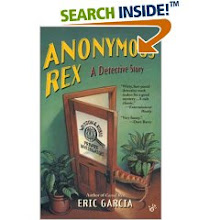
Reading Eric Garcia for Christmas
Click Here to Purchase Anonymous Rex
Vinegar Hill
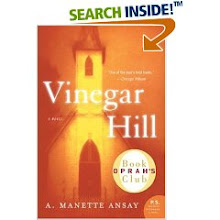
Reading A. Manette Ansay for Christmas
Click Here to Purchase Vinegar Hill
Nicotine Dreams

Reading Katie Cunningham for Christmas
Click Here to Purchase Nicotine Dreams
Junot Diaz
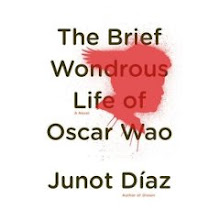
Pulitzer Prize Winner!!!
Click Here to Purchase The Brief Wondrous Life of Oscar Wao
Edwige Danticat

New Year's Reading
Click Here to Purchase Brother I"m Dying
Greed
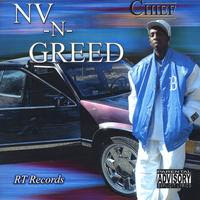
This Brother Is Scary Good
Sweet Music
One More Chance
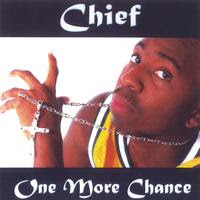
The genius Is At It Again/The Rapper CHIEF aka Sherwin Allen
Sandrine's Letter
Check out Sandrine's Letter To Tomorrow. You will like it, I insist.
Sandrine's Link
Cool Sites
- Akashic Books
- All or Nothing (My Other Blog)
- Asili The Journal
- Best Gamblling News Site
- Black Star Review
- Book Remarks
- Booktour.com
- Carolina Wren Press
- Click Here for Some Pretty Good Writing Contests
- Dedra Johnson
- Enrico Theoc
- Felicia Luna Lemus
- Florida Book Review
- Foreword Magazine
- Gambling Is Linked to Suicide
- Gambling Is Not Linked to Suicide
- Gaming Law Review
- Gene Durnell's The Thinking Journalist
- Gene Durnell's The Thinking Journalist
- Geoffrey Philp's Blog
- Get Chief's CDs on CD Baby
- Getting Past Gambling
- Gonzalo Barr's Blog
- Good Reads
- Hallema's Homepage
- Help With Gambling Addiction
- Jeremy Shipp's Website
- John Dufresne's Blog
- Leonard Nash Homepage
- Links to Seminole Casinos in Florida
- Martha Frankel's Homepage
- Michael A. Gonzales
- Miss Snark/ An Agent Gives Great Publishing Advice
- More Addiction Help
- No Gambling.com
- Pat MacEnulty
- ScrewIowa.com
- St. Louis Rams, The Greatest Show on Turf
- Suicide reference library
- T Cooper
- University of Florida
- Vicki Hendricks
- Walter Jacobs's Blog
- Writers Who Read
- Writing with Celia

All or Nothing

Editorial Reviews of All or Nothing
Florida Book Review--". . . Allen examines the flaming abyss compulsive gambling burns in its victims’ guts, self-esteem and bank accounts, the desperate, myopic immediacy it incites, the self-destructive need it feeds on, the families and relationships it destroys. For with gamblers, it really is all or nothing. Usually nothing. Take it from a reviewer who’s been there. Allen is right on the money here."
Foreword Magazine--"Not shame, not assault, not even murder is enough reason to stop. Allen’s second novel, All or Nothing, is funny, relentless, haunting, and highly readable. P’s inner dialogues illuminate the grubby tragedy of addiction, and his actions speak for the train wreck that is gambling."
Library Journal--"Told without preaching or moralizing, the facts of P's life express volumes on the destructive power of gambling. This is strongly recommended and deserves a wide audience; an excellent choice for book discussion groups."—Lisa Rohrbaugh, East Palestine Memorial P.L., OH
LEXIS-NEXIS--"By day, P drives a school bus in Miami. But his vocation? He's a gambler who craves every opportunity to steal a few hours to play the numbers, the lottery, at the Indian casinos. Allen has a narrative voice as compelling as feeding the slots is to P." Betsy Willeford is a Miami-based freelance book reviewer. November 4, 2007
Publisher’s Weekly--"Allen’s dark and insightful novel depicts narrator P’s sobering descent into his gambling addiction . . . The well-written novel takes the reader on a chaotic ride as P chases, finds and loses fast, easy money. Allen (Churchboys and Other Sinners) reveals how addiction annihilates its victims and shows that winning isn’t always so different from losing."
Kirkus Review--"We gamble to gamble. We play to play. We don't play to win." Right there, P, desperado narrator of this crash-'n'-burn novella, sums up the madness. A black man in Miami, P has graduated from youthful nonchalance (a '79 Buick Electra 225) to married-with-a-kid pseudo-stability, driving a school bus in the shadow of the Biltmore. He lives large enough to afford two wide-screen TVs, but the wife wants more. Or so he rationalizes, as he hits the open-all-night Indian casinos, "controlling" his jones with a daily ATM maximum of $1,000. Low enough to rob the family piggy bank for slot-machine fodder, he sinks yet further, praying that his allergic 11-year-old eat forbidden strawberries—which will send him into a coma, from which he'll emerge with the winning formula for Cash 3 (the kid's supposedly psychic when he's sick). All street smarts and inside skinny, the book gives readers a contact high that zooms to full rush when P scores $160,000 on one lucky machine ("God is the God of Ping-ping," he exults, as the coins flood out). The loot's enough to make the small-timer turn pro, as he heads, flush, to Vegas to cash in. But in Sin City, karmic payback awaits. Swanky hookers, underworld "professors" deeply schooled in sure-fire systems to beat the house, manic trips to the CashMyCheck store for funds to fuel the ferocious need—Allen's brilliant at conveying the hothouse atmosphere of hell-bent gaming. Fun time in the Inferno.
At Books and Books
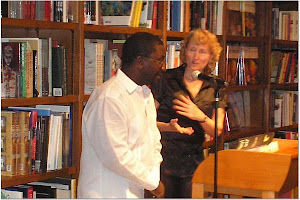
Me And Vicki at Our Reading
Bio
Preston L. Allen is the recipient of a State of Florida Individual Artist Fellowship in Literature and the Sonja H. Stone Prize in Fiction for his short story collection Churchboys and Other Sinners (Carolina Wren Press 2003). His works have appeared in numerous publications including The Seattle Review, The Crab Orchard Review, Asili, Drum Voices, and Gulfstream Magazine; and he has been anthologized in Here We Are: An Anthology of South Florida Writers, Brown Sugar: A Collection of Erotic Black Fiction, Miami Noir, and the forthcoming Las Vegas Noir. His fourth novel, All Or Nothing, chronicles the life of a small-time gambler who finally hits it big. Preston Allen teaches English and Creative Writing in Miami, Florida.